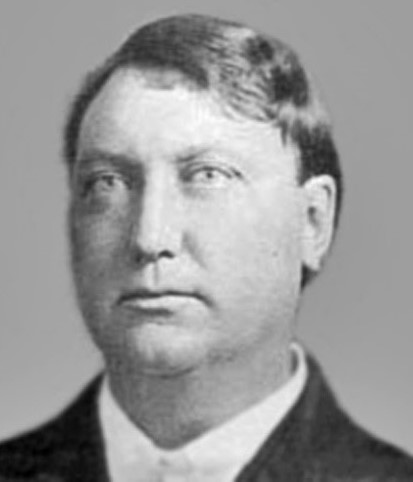 |
| Sen. William E. Borah |
Civilization is not a flower of Eden, it blossoms amid the storms and
tempests of life, where men have been made noble by affliction, independent by
toil, brave by the thrill of conquest, where brain and sinew wrestle with the
realities of existence. – William Edgar Borah
Progressive and Republican: how are these words employed
today if not in opposition? But they
were used together – in a unity – to describe one of Idaho’s most famous politicians
. . . William Edgar Borah. By the time
his political career was in full swing, Democrats would endorse him and fellow
Republicans – wherever they were on the Party’s spectrum – would, well, leave
him alone. Borah would follow his ideals
even if it meant running contrary to his Party and even to the wishes of his
home state’s populace. The term
Progressive Republican was used to describe him, a term enigmatic to me. Let’s take a closer look at this concept to
better understand the man, Borah, and perhaps gain some insight into today’s
political landscape.
What is a Republican?
Republicans, at their core, trace their lineage back to ancient Rome, to
when the Republic was founded.
Tarquin –
the despised monarch –
and his family
were exiled.
Approaching
Deep Time, this happened in
the 6
th century BC.
But the
importance of overthrowing a king and the liberty it brings is something that
has reverberated through time.
Consider
this intro of one of Borah’s speeches:
“It
is said of a famous Roman statesman that before going forth to the Senate
Chamber to combat the alluring corruption of his people he would visit the tomb
and study the life of the elder Brutus, whose sturdy virtues nourished anew the
patriot’s manhood. This is the real
worth of today’s celebration . . . We should upon this occasion view as
intelligently as we can the questions of the present.”
 |
| Lucius Junius Brutus |
An appeal to patriotism and an
homage to the “
Elder
Brutus” – Lucius Junius Brutus, who led the revolt to take down the
Tarquin.
This is the core of the concept
of Republicanism – a break from the rule of kings.
The importance of education is represented in
that statement as well.
As Borah further
states (in a manner that is kind of lost on this modern reader): “The republic
which neglects the education of its subjects is the monarchy which disbands its
standing army and leaves its men-of-war to rot upon the sea”.
The Republican Party proper rose in 1854 from the ashes of
the Whig Party which enjoyed a heyday in the mid-1800s (four presidents, though).
The Whigs were the party of Lincoln – later, the
first Republican President – who
freed the slaves.
Whigs were
a party for entrepreneurs and “planters” and advocated for “economic
protectionism to stimulate manufacturing”.
They provide a template for the Party in Borah’s time:
The
Whigs celebrated [Henry] Clay's vision of the "American System" that
promoted rapid economic and industrial growth in the United States. Whigs
demanded government support for a more modern, market-oriented economy, in
which skill, expertise and bank credit would count for more than physical
strength or land ownership. Whigs sought to promote faster industrialization
through high tariffs, a business-oriented money supply based on a national bank
and a vigorous program of government funded "internal improvements"
(what we now call infrastructure projects), especially expansion of the road
and canal systems. To modernize the inner America, the Whigs helped create
public schools, private colleges, charities, and cultural institutions. Many
were pietistic Protestant reformers who called for public schools to teach
moral values and proposed prohibition to end the liquor problem.
The Whig Party disintegrated over the slavery debate and
other issues. Northern Whigs were
anti-slavery and came to dominate the Republican government of the Civil
War. Interestingly, the opposition Democrats
felt that Whig policies would create an undemocratic, aristocratic class. In broad strokes, the Democrats were for the
farmer while the Whigs were for the newly created business entrepreneurs/elites.
But in the late 1800s there seemed a clearer link between
one’s personal interests – being a banker, farmer, entrepreneur, etc. – and
one’s political affiliation.
In his
book
on Borah Claudius O. Johnson writes:
But
the Populist party, the flower of agrarian distress in the ‘nineties,
advocating the direct election of Senators, direct legislation, woman suffrage,
postal savings, income taxes, severe cubs upon corporations, was being hear
from. Its ringing declarations that “the
fruits of the toil of millions are boldly stolen to build up colossal fortunes
for the few, unprecedented in the history of mankind” was a saying which the
many small-income Idahoans kept and pondered in their hearts (42).
This is the climate that Borah and
other politicians had to operate within.
The Democrats happily joined with Populists to form a “fusion party”:
the fourth Governor of Idaho,
Frank Steunenberg
was a fusion candidate.
 |
| Gov. Frank Steunenberg, a Democratic-Progressive fusionist |
Indeed, the Republican Party was again not immune to
breakaway elements. In 1912 Taft saw
competition from Teddy Roosevelt (president 1901-1909) running on a progressive
platform. When party insiders saw to it
that the incumbent was their man, Roosevelt left the party and formed The
Progressive Party (aka the Bull Moose Party).
Borah was asked to come along. He
refused, stating:
“If
you ask me if I am a Republican I answer, ‘Yes,’ as I understand Republican
doctrines I am. If you ask me if I am a
third-party man I answer ‘No,’ I have not joined the third party. But inside or outside I propose to urge the
Progressive measures for which I, with others, have stood.”
And what are those doctrines? He continues, refuting his critics:
“I
ask those who say I am not a Republican to meet me upon the record. Where is the Republican who will defend upon
the rostrum free trade for the farmer and protection for the manufacturer, free
trade for all you grain and farm produce and protection for the blanket which
you buy to protect you from winter’s cold?”
He goes on to mention his support of
a homestead law, an 8-hour workday law, the Children’s Bureau bill and support
of creation of a department of labor.
Taft and Roosevelt ended up losing to the (more) progressive
Woodrow Wilson.
Wilson focused his
attentions on attacking Roosevelt, “
arguing
that Roosevelt had been lukewarm in opposing the trusts during his presidency,
and that Wilson was the true reformer”.
 |
| Taft v. Roosevelt, a party divided |
To conclude, Borah found himself defending his progressive
strain – a strain that was founded in his moral outlooks, his views of what was
truly just and good for the people. The
terms progressive and Republican are not mutually exclusive
and there employment to describe a politician reflects someone coping with an ever-changing
economic/political/demographic/etc. landscape. I’ll let Claudius O. Johnson finish:
[M]easured
by the votes of all senators who call themselves Republicans, Borah falls
distinctly in the progressive group on all important mattes save the tariff, where
he was not far below regular. But Borah
was not interested in the progressive organization as an independent
organization. He regarded himself as a progressive
Republican rather than as a Progressive. His interest was in making the Republican
party progressive.











